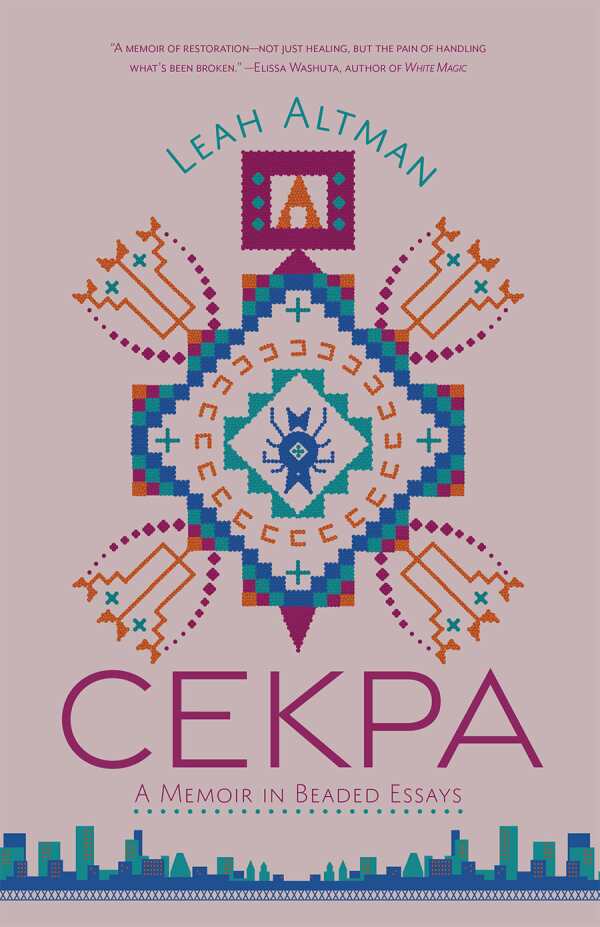Cekpa
A Memoir in Beaded Essays
Leah Altman’s bold memoir-in-essays is about reclaiming her Native American identity after a transracial adoption and traumatic upbringing.
Following the Indian Child Welfare Act of 1978, the book reports, up to 35% of Native American children were removed from their homes. For Altman, this entailed the loss of her mixed Lakota and Persian heritage. Sexual molestation in her childhood led to self-harm, including substance abuse and suicide attempts.
When she was twenty-one, Altman moved from Oregon to South Dakota to look for her biological family. The Gateway to College program helped her reform her life after dropping out of high school. Peyote and sweat lodge ceremonies facilitated her reconnection with Indigenous culture.
The central metaphor of the cekpa, a beaded leather bag containing the carrier’s umbilical cord, is a powerful one. Altman notes that a Lakota mother makes two: the real one is hidden; a dummy version distracts evil spirits. Altman asserts that growing up with no cekpa symbolized her uprooting from ancestral land and customs. The beading on the purse also inspires the book’s structure: short chapters pick out vignettes on a chronological thread.
The essay’s forms vary. “Seven Phases” groups its fragments under the stages of a methamphetamine high cycle, reflecting on Altman’s relationship with her birth sister, Petra. “Fifteen” captures her turbulent teenage years in a prose poem: “Fifteen is a chaotic beautiful rainbow acid sky and girls on the cusp of becoming women.” Elsewhere, a direct address to Altman’s two daughters is used to contrast the darkness of her past with the hope she holds for the future.
A raw, confessional memoir, Cekpa models resilience in the face of trauma.
Reviewed by
Rebecca Foster
Disclosure: This article is not an endorsement, but a review. The publisher of this book provided free copies of the book to have their book reviewed by a professional reviewer. No fee was paid by the publisher for this review. Foreword Reviews only recommends books that we love. Foreword Magazine, Inc. is disclosing this in accordance with the Federal Trade Commission’s 16 CFR, Part 255.

